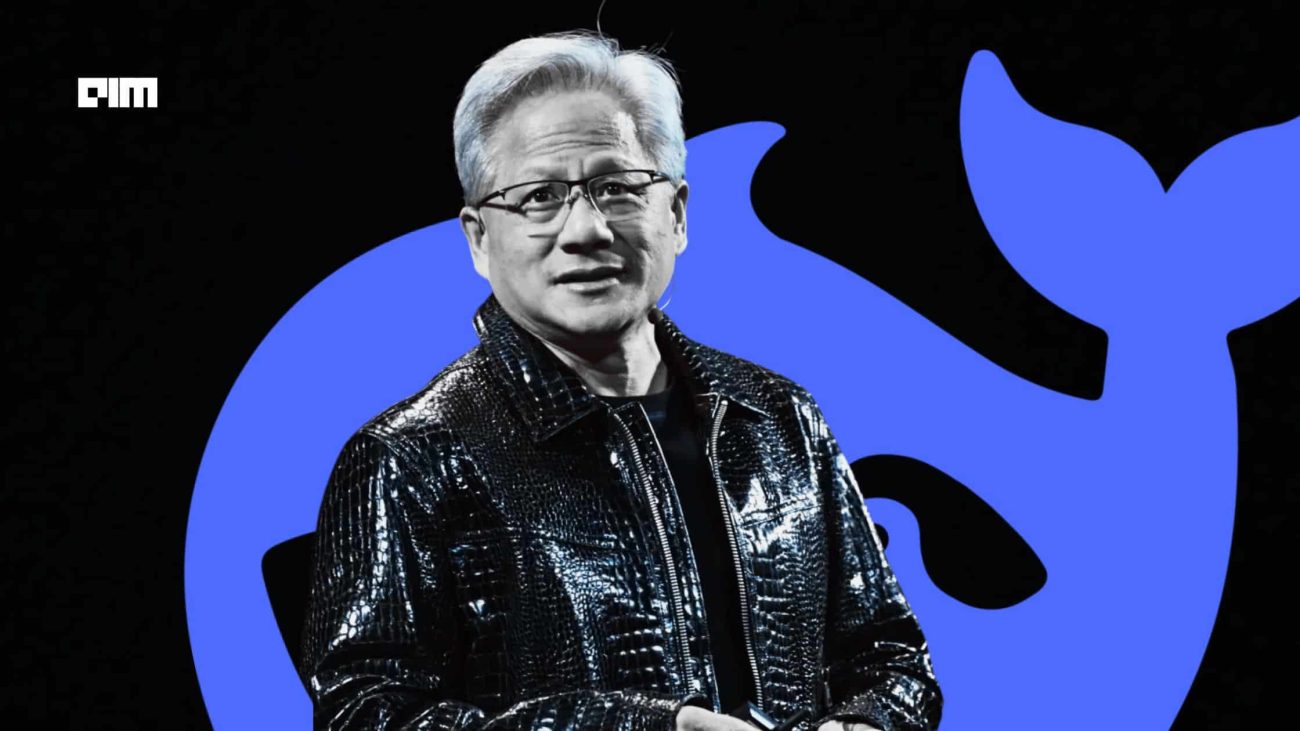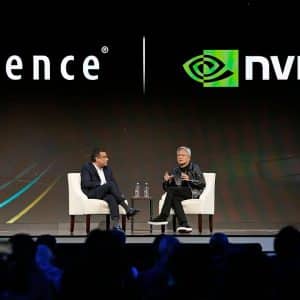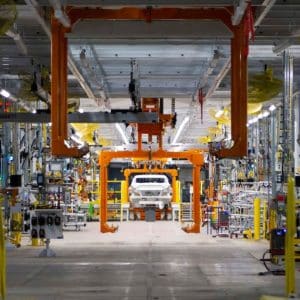In the past month, while AI enthusiasts celebrated the Chinese AI startup DeepSeek’s low-cost R-1 model, which was built with minimal GPUs and capital, the market responded rather brutally. NVIDIA lost nearly $600 billion as its stocks tumbled 17% owing to the efficiency with which the model was built.
More recently, DeepSeek-V3 used just 2,048 NVIDIA H800 GPUs to outperform most open-source models. In contrast, xAI’s Grok-3 was trained on over 100,000 GPUs, yet beats DeepSeek-R1 by just a small margin.
This made the chip market question whether such large numbers of GPUs were even needed to train these models. However, the story has multiple layers, and DeepSeek’s achievements may not hurt the chip demand after all.
Experts speculate that the Chinese company may not be revealing the whole truth. During an interview, the CEO of Scale AI, Alexandr Wang, said that he believed DeepSeek possessed around 50,000 NVIDIA H100s, but wasn’t permitted to talk about it.
Jensen Huang Clarifies
NVIDIA chief Jensen Huang recently addressed this market reaction, asserting that investors misinterpreted the implications of the Chinese firm’s developments.
During a conversation with DDN’s Alex Bouzari, he emphasised that DeepSeek’s R1 model was built using less powerful chips and significantly lower funding than their Western counterparts. This led to the dramatic sell-off of NVIDIA stocks.
“From an investor perspective, there was a mental model that the world was pre-training, and the inference was that you ask an AI a question, which instantly gives you an answer. I don’t know whose fault it is, but obviously, that paradigm is wrong,” he said.
However, Huang believes this reaction stemmed from a misunderstanding of the AI landscape, particularly the ongoing need for high-performance computing in post-training processes, which is essential for AI functionality.
He pointed out that while DeepSeek’s innovations are exciting and energising for the AI sector, they do not diminish the demand for NVIDIA’s chips. Huang explained that post-training methods—where AI models make predictions or draw conclusions after initial training—remain critical and require substantial computing power.
As DeepSeek continues to generate interest and discussion across various tech sectors, including earnings calls of major companies like Airbnb and Palantir, it is clear that its impact on AI development will be significant.
Analysts have noted that while DeepSeek’s cost-effective approach may disrupt traditional chip demand, it could also increase competition and innovation within the semiconductor industry. Companies like AMD and Intel may find opportunities to expand their market presence as AI adoption grows, driven by more accessible technologies.
ASML Saw Nearly 9% Rise in Shares
Shortly after the NVIDIA sell-off, Netherlands-based ASML, a leading manufacturer of chip-making equipment, saw shares jump nearly 9% when the company reported a sharp rise in net bookings in the fourth quarter ending December 2024.
Earlier that week, ASML’s stock had suffered a blow amid the global tech sell-off following DeepSeek’s rollout of its R1 reasoning model, which claims to outperform OpenAI’s o1 in both cost and efficiency.
The launch had raised concerns that AI firms might reduce spending on advanced chips, potentially impacting ASML’s extreme ultraviolet (EUV) machines, which produce high-end semiconductors. However, CEO Christophe Fouquet dispelled the fears of a slowdown, stating that lower AI costs could drive greater demand for semiconductors.
“A lower cost of AI could mean more applications. More applications mean more demand over time. We see that as an opportunity for more chip demand,” Fouquet told CNBC. As a result, ASML said net bookings totalled €7.09 billion, marking a 169% increase from the previous quarter. The figure exceeded analyst expectations of €3.99 billion, signalling continued demand for its chipmaking tools.
The company’s net sales reached €9.26 billion, surpassing the expected €9.07 billion, and its net profit was €2.69 billion, slightly above the €2.64 billion forecast.
Despite concerns, ASML’s latest results suggested continued strength in semiconductor demand, reinforcing its position as a key supplier in the AI-driven chip industry.






























